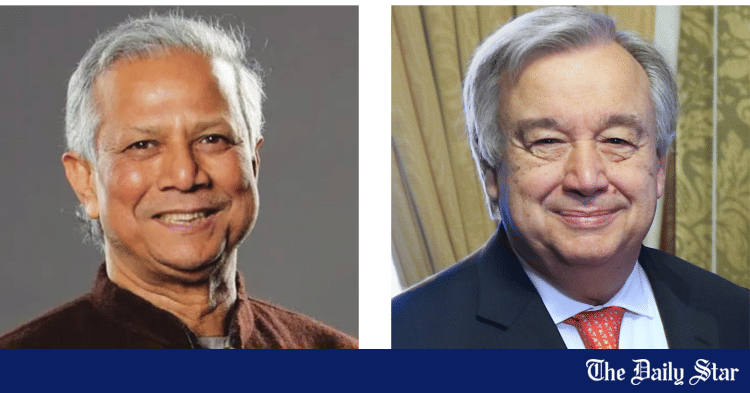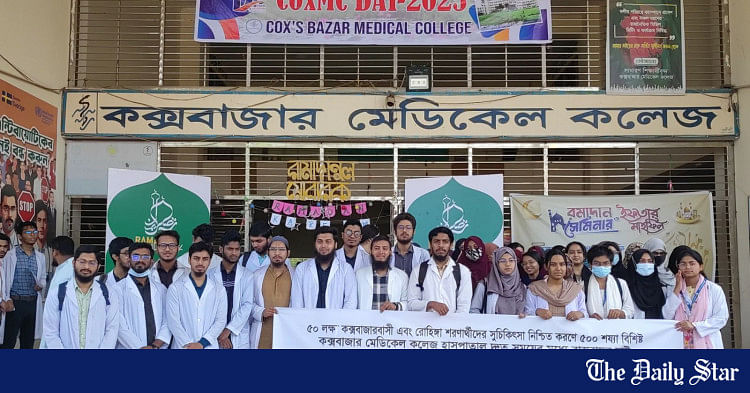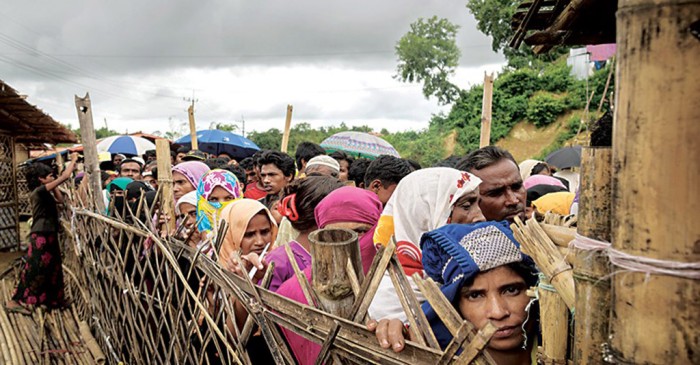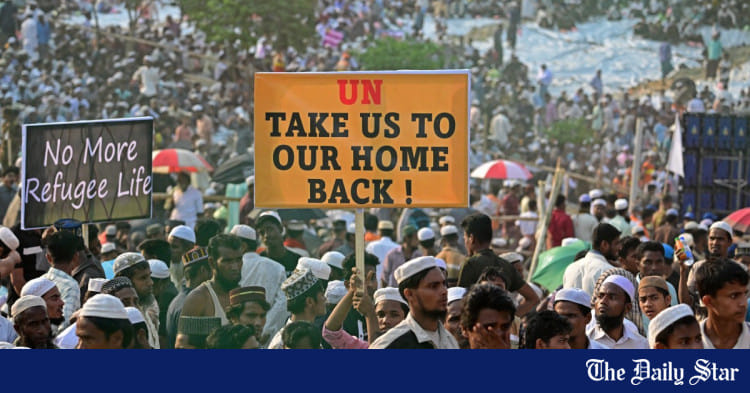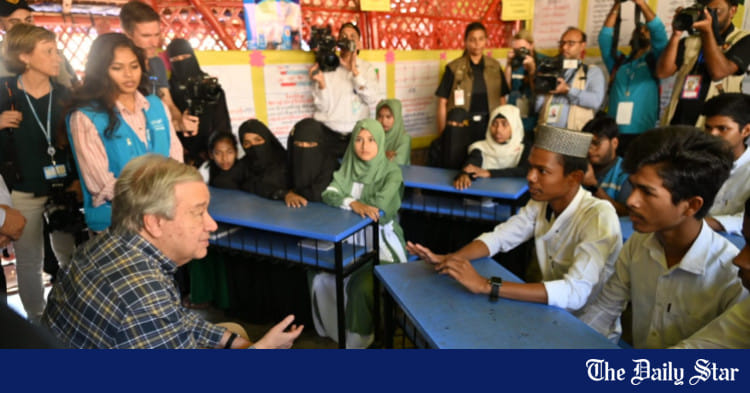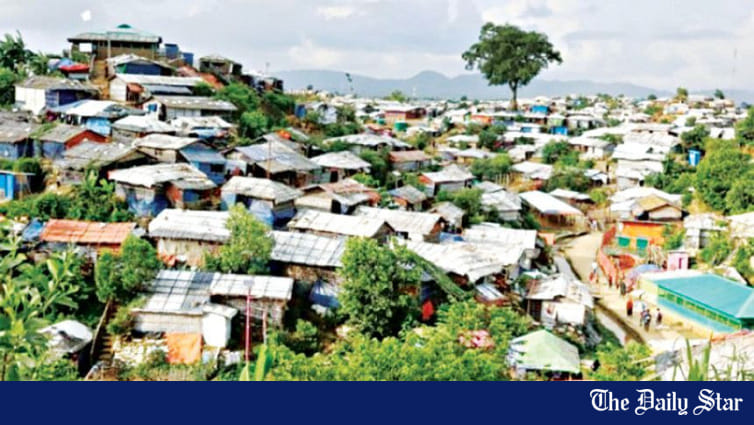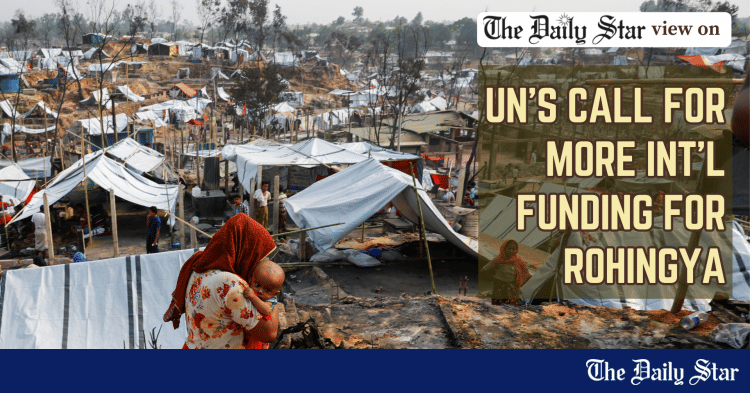Saif
Senior Member
- Joined
- Jan 24, 2024
- Messages
- 15,397
- Reaction score
- 7,874
- Nation

- Residence

- Axis Group


How is Myanmar's civil war impacting Bangladesh? – DW – 02/22/2024
Fighting between Myanmar's junta and rebel groups in Rakhine state is growing more intense. Neighboring Bangladesh may soon need to reach out to rebels on security and refugee issues.
How is Myanmar's civil war impacting Bangladesh?
Arafatul Islam in Cox's Bazar
02/22/2024February 22, 2024

Bangladesh is closely watching the fighting in Myanmar's neighboring Rakhine state
Fighting between Myanmar's junta and rebel groups in Rakhine state is growing more intense. Neighboring Bangladesh may soon need to reach out to rebels on security and refugee issues.
Fighting between Myanmar's junta and the Arakan Army (AA) rebel group in western Myanmar's Rakhine state has intensified. Casualties have also been recorded in Bangladesh, with two people killed by an errant mortar round this month and several injured by gunshots from across the border. Rebel fighters have recently taken control of the Myanmar border region, and are seeking to oust junta forces from elsewhere in the state.
This comes as a heavy blow for the Myanmar's ruling junta, which seized power in February 2021 from the elected government of Aung San Suu Kyi to find itself embroiled in a wide-scale civil war.
The Arakan Army is the military wing of the Rakhine ethnic minority that seeks autonomy from Myanmar's central government. It has been attacking army outposts in Rakhine state since November 2023.
Rohingya refugees skeptical of return to Rakhine
Bangladesh is a predominantly Muslim country, which shares a 271-kilometer (168 miles) border with Buddhist-dominated Myanmar.
Bangladesh is also the home of more than a million mostly Muslim Rohingya refugees, which have been fleeing Myanmar for decades, and especially after Myanmar launched a brutal "clearance operation" in Rakhine state against them in 2017.
Talking to DW, several Rohingya refugees in the coastal Bangladeshi town of Cox's Bazar commented on the success of the AA rebels with skepticism. They do not believe that predominantly Buddhist rebel force is willing to do much to improve their fate, even if the rebels manage to oust the junta.
"Buddhists have indeed been fighting against the Myanmar government in Rakhine, but we want citizenship upon return," Rashid, a Rohingya camp leader, told DW.
"We have never heard from [the AA] that they will take us back by providing us citizenship."
Should Dhaka reach out to rebels?
However, Bangladeshi security expert M Sakhawat Hossain is more optimistic. The retired general points to pledges made by Myanmar's National Unity Government (NUG) to ensure safe, voluntary and dignified repatriation of Rohingya from Bangladesh.
The NUG is a shadow government comprised out of activists and elected ministers who were ousted by the military coup.
The body enjoys a good deal of international support and has plans of taking power in Naypyidaw after the junta is defeated.
"The United League of Arakan (ULA), the political wing of the Arakan Army, will rule Rakhine state if the junta government loses its battles against the rebels and the NUG takes control of Myanmar. The NUG supports the ULA, which means that the Rohingya community has a better chance to get citizenship under the NUG and ULA," Hossain told DW.
He thinks that Bangladesh needs to develop informal communication with key decision-makers in Rakhine for the future.
"I have been saying for years that Bangladesh needs to support the AA for its own interest. This support can be informal, like many other countries do. It's not important for Bangladesh what is happening in the whole of Myanmar, but what is happening in Rakhine and Chin states are very important for us in terms of security and refugee issues," he said.

Bangladeshi authorities hope to stop new refugee waves out of MyanmarImage: Arafatul Islam/DW
Sending back Rohingya could backfire
At the same time, Bangladesh must be cautious in reaching out to rebels in any way, according to Michael Kugelman, South Asia director of the Washington-based Wilson Center think tank.
"[Bangladesh] needs workable relations with the junta for the sake of border security cooperation and negotiations over the Rohingya. If Dhaka opens up channels with the rebels and the junta knows this, that could have deleterious implications for Dhaka's interests," he told DW.
Kugelman acknowledged that the rebels are making rapid gains against the junta. But this could push the junta to resort to even more brutal tactics, and that could in turn intensify the conflict and increase spillover effects in Bangladesh.
"AA gains or control in Rakhine may make conditions better for the Rohingya, but it could also make things more difficult," Kugelman said. The junta could interpret any initiative to repatriate the Rohingya refugees as a signal of cooperation between the Muslim group and the Buddhist rebels, which could "entail fresh threats to Rohingya communities," he told DW.

Smoke rises from fighting in Myanmar, seen from the Bangladesh side of the borderImage: Shafiqur Rahman/AP/picture alliance
Bangladesh doesn't want more refugeees
Meanwhile, Rohingya in Rakhine's Maungdaw area remain trapped amid fierce fighting between the junta forces and the AA rebels, Nay San Lwin, a co-founder of the Free Rohingya Coalition, told DW.
"The junta is losing on the battlefield, and the Rohingya are running to save their lives while the Arakan Army is attempting to take full control of the region," he said.
"In Buthidaung and Maungdaw townships, approximately 270,000 Rohingya are remaining. In the entire Rakhine state, there are approximately 600,000 Rohingya, including about 130,000 confined to camps," he added.
Nay runs one of the biggest Rohingya information hubs from Frankfurt, Germany. He thinks that the remaining Rohingya in Mynamar will attempt to flee the civil war, but would avoid Bangladesh.
"Rohingya in the region are very cautious about fleeing to Bangladesh. Many of their fellow Rohingya have been trapped in Bangladeshi camps for several years, and the prospect of repatriation is uncertain," he told DW.
"Only those in need of medical attention are attempting to flee to seek treatment in Bangladesh due to insufficient medical staff at Maungdaw Hospital. According to residents, the surgeon has left," Nay added.
And Bangladesh, already overwhelmed by continuous waves of refugees, is not in the mood to accept anyone from Myanmar at the moment.
"Our Border Guard Bangladesh (BGB) and coast guard have intensified their petrol at the border so that no one from Myanmar could infiltrate into Bangladesh," Muhammad Shaheen Imran, the deputy commissioner of Cox's Bazar, told DW.
Edited by: Darko Janjevic
Arafatul Islam in Cox's Bazar
02/22/2024February 22, 2024
Bangladesh is closely watching the fighting in Myanmar's neighboring Rakhine state
Fighting between Myanmar's junta and rebel groups in Rakhine state is growing more intense. Neighboring Bangladesh may soon need to reach out to rebels on security and refugee issues.
Fighting between Myanmar's junta and the Arakan Army (AA) rebel group in western Myanmar's Rakhine state has intensified. Casualties have also been recorded in Bangladesh, with two people killed by an errant mortar round this month and several injured by gunshots from across the border. Rebel fighters have recently taken control of the Myanmar border region, and are seeking to oust junta forces from elsewhere in the state.
This comes as a heavy blow for the Myanmar's ruling junta, which seized power in February 2021 from the elected government of Aung San Suu Kyi to find itself embroiled in a wide-scale civil war.
The Arakan Army is the military wing of the Rakhine ethnic minority that seeks autonomy from Myanmar's central government. It has been attacking army outposts in Rakhine state since November 2023.
Rohingya refugees skeptical of return to Rakhine
Bangladesh is a predominantly Muslim country, which shares a 271-kilometer (168 miles) border with Buddhist-dominated Myanmar.
Bangladesh is also the home of more than a million mostly Muslim Rohingya refugees, which have been fleeing Myanmar for decades, and especially after Myanmar launched a brutal "clearance operation" in Rakhine state against them in 2017.
Talking to DW, several Rohingya refugees in the coastal Bangladeshi town of Cox's Bazar commented on the success of the AA rebels with skepticism. They do not believe that predominantly Buddhist rebel force is willing to do much to improve their fate, even if the rebels manage to oust the junta.
"Buddhists have indeed been fighting against the Myanmar government in Rakhine, but we want citizenship upon return," Rashid, a Rohingya camp leader, told DW.
"We have never heard from [the AA] that they will take us back by providing us citizenship."
Should Dhaka reach out to rebels?
However, Bangladeshi security expert M Sakhawat Hossain is more optimistic. The retired general points to pledges made by Myanmar's National Unity Government (NUG) to ensure safe, voluntary and dignified repatriation of Rohingya from Bangladesh.
The NUG is a shadow government comprised out of activists and elected ministers who were ousted by the military coup.
The body enjoys a good deal of international support and has plans of taking power in Naypyidaw after the junta is defeated.
"The United League of Arakan (ULA), the political wing of the Arakan Army, will rule Rakhine state if the junta government loses its battles against the rebels and the NUG takes control of Myanmar. The NUG supports the ULA, which means that the Rohingya community has a better chance to get citizenship under the NUG and ULA," Hossain told DW.
He thinks that Bangladesh needs to develop informal communication with key decision-makers in Rakhine for the future.
"I have been saying for years that Bangladesh needs to support the AA for its own interest. This support can be informal, like many other countries do. It's not important for Bangladesh what is happening in the whole of Myanmar, but what is happening in Rakhine and Chin states are very important for us in terms of security and refugee issues," he said.
Bangladeshi authorities hope to stop new refugee waves out of MyanmarImage: Arafatul Islam/DW
Sending back Rohingya could backfire
At the same time, Bangladesh must be cautious in reaching out to rebels in any way, according to Michael Kugelman, South Asia director of the Washington-based Wilson Center think tank.
"[Bangladesh] needs workable relations with the junta for the sake of border security cooperation and negotiations over the Rohingya. If Dhaka opens up channels with the rebels and the junta knows this, that could have deleterious implications for Dhaka's interests," he told DW.
Kugelman acknowledged that the rebels are making rapid gains against the junta. But this could push the junta to resort to even more brutal tactics, and that could in turn intensify the conflict and increase spillover effects in Bangladesh.
"AA gains or control in Rakhine may make conditions better for the Rohingya, but it could also make things more difficult," Kugelman said. The junta could interpret any initiative to repatriate the Rohingya refugees as a signal of cooperation between the Muslim group and the Buddhist rebels, which could "entail fresh threats to Rohingya communities," he told DW.
Smoke rises from fighting in Myanmar, seen from the Bangladesh side of the borderImage: Shafiqur Rahman/AP/picture alliance
Bangladesh doesn't want more refugeees
Meanwhile, Rohingya in Rakhine's Maungdaw area remain trapped amid fierce fighting between the junta forces and the AA rebels, Nay San Lwin, a co-founder of the Free Rohingya Coalition, told DW.
"The junta is losing on the battlefield, and the Rohingya are running to save their lives while the Arakan Army is attempting to take full control of the region," he said.
"In Buthidaung and Maungdaw townships, approximately 270,000 Rohingya are remaining. In the entire Rakhine state, there are approximately 600,000 Rohingya, including about 130,000 confined to camps," he added.
Nay runs one of the biggest Rohingya information hubs from Frankfurt, Germany. He thinks that the remaining Rohingya in Mynamar will attempt to flee the civil war, but would avoid Bangladesh.
"Rohingya in the region are very cautious about fleeing to Bangladesh. Many of their fellow Rohingya have been trapped in Bangladeshi camps for several years, and the prospect of repatriation is uncertain," he told DW.
"Only those in need of medical attention are attempting to flee to seek treatment in Bangladesh due to insufficient medical staff at Maungdaw Hospital. According to residents, the surgeon has left," Nay added.
And Bangladesh, already overwhelmed by continuous waves of refugees, is not in the mood to accept anyone from Myanmar at the moment.
"Our Border Guard Bangladesh (BGB) and coast guard have intensified their petrol at the border so that no one from Myanmar could infiltrate into Bangladesh," Muhammad Shaheen Imran, the deputy commissioner of Cox's Bazar, told DW.
Edited by: Darko Janjevic





